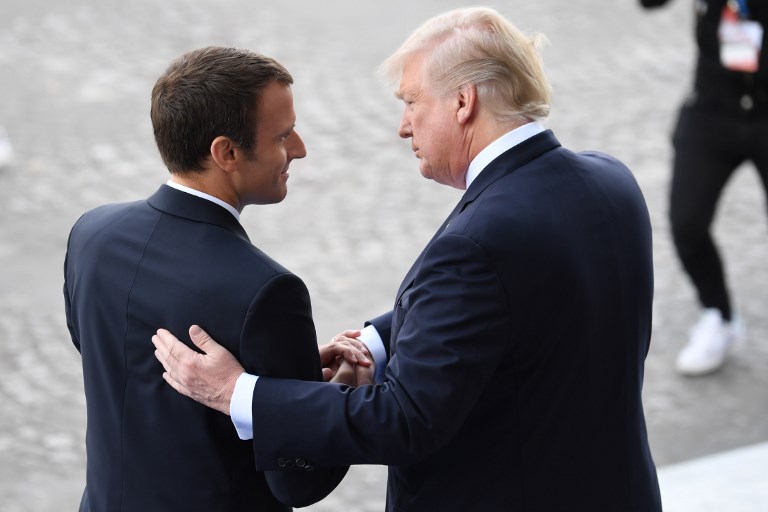
by Heather Scott
© Agence France-Presse
WASHINGTON, United States (AFP) — Key US trading partners face a looming deadline on Tuesday when crippling tariffs on steel and aluminum are set to take effect — and they are urging the White House to exempt them permanently.
The major suppliers, including Canada, Mexico, South Korea and the European Union, were granted a temporary reprieve when President Donald Trump imposed the tariffs in March.
The measures were largely aimed at overcapacity in China but the scattershot approach hit many allies and key suppliers and governments in those countries have threatened to retaliate if they are not exempted.
That threat of escalating trade war has halted the steady upswing in global stock markets while companies around the United States are reporting that rising costs are already hitting their bottom line.
And many economists say the tactics are likely to be counterproductive and undermine cooperation at a time when allied Asian and Western nations seek a united front on Iran, North Korea and China’s violations of intellectual property rights.
They worry that Trump will focus on a short-term win, rather than more important longer-term changes. That is especially true if Trump continues to concentrate on forcing a reduction in the US trade deficit, which economists agree is not the right way to gauge a healthy trading relationship.
“If that’s the sole metric and that’s done by purchasing a few more Boeings…that doesn’t actually get at more medium term structural issues in China that will make a difference in the long run,” said economist Stephanie Segal of the Center for Strategic and International Studies.
“I fear if we declare victory with a one-off from China, we’ve broken a lot of eggs and without actually making the omelet,” she told AFP.
Retaliation
Trump met last week with French President Emmanuel Macron and German Chancellor Angela Merkel but he gave no indication of whether he would extend or make permanent the tariff exemption for the EU, which exported over $7.7 billion of steel and aluminum to the US market last year.
Macron in an address to the US Congress urged Washington to reject protectionism.
“We need a free and fair trade, for sure,” Macron said. “A commercial war opposing allies is not consistent with our mission, with our history, with our current commitments for global security.”
Merkel, whose visit was briefer and who has had more chilly relations with Trump, steered clear of any tough talk.
“We had an exchange of views on the current state of affairs on the negotiations…and the decision lies with the president,” she said at a White House press conference.
But Brussels has vowed to retaliate if it faces tariffs by putting punitive duties on American products ranging from industrial and agricultural items to flagship products such as jeans and motorbikes, peanut butter and bourbon.
Meanwhile, trade ministers from the US, Canada and Mexico met during the week to advance talks on revising the 24-year-old North American Free Trade Agreement and made enough progress that they have set their next ministerial meeting for May 7.
That would seem to bode well for continued tariff exemptions for the two NAFTA partners. Canada exported over $12 billion of steel and aluminum to the US in 2017, with another $3 billion from Mexico.
Letting the genie out
What is not clear is what concessions would be enough to satisfy Washington. The tariffs were imposed on the grounds that the glut of steel imports hurt US industry and therefore threatened national security.
But White House economic advisor Larry Kudlow suggested last week that EU concessions on auto imports might be sufficient to win an exemption — though that has no links to national security concerns.
And economists warn that using national security as a justification for trade measures opens the door for other countries to do the same.
“This is a really slippery slope in a bazillion ways,” said Mary Lovely, professor of economics at Syracuse University. “This could be a blank check for using these kinds of tools.”
Segal agreed: “Once you’ve let the genie out of the bottle, it’s hard to complain about other countries.”
Gregory Daco of Oxford Economics said if the exemptions were not extended, tariffs would move from hitting just 30 percent of US imports to the main US suppliers.
“The risk is that we could see a major supply chain shock with negative spillovers to financial markets,” which dropped precipitously when the tariffs were announced, he said.
© Agence France-Presse







